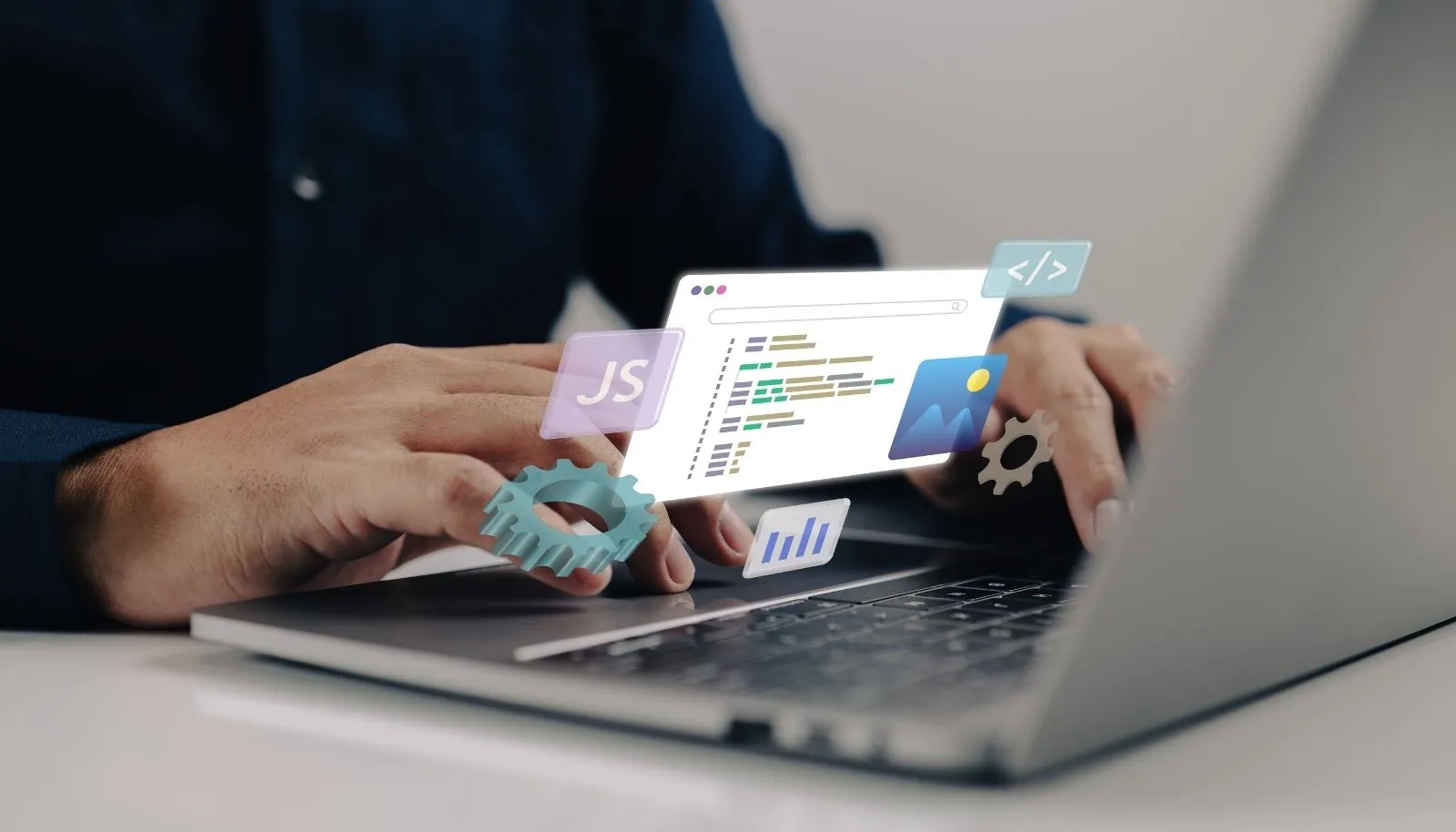Create Event Website: Templates, Tickets & SEO Tips (2025)
Ready to create event website that drives registrations and ticket sales? Whether you’re planning a conference, concert, workshop, or wedding, a dedicated event website is essential for promoting your gathering and managing attendees. This comprehensive 2025 guide walks you through selecting the right templates, integrating ticket systems, and implementing proven SEO strategies to ensure your event website attracts maximum attendance.
Table of Contents
- Why You Need a Dedicated Website for Your Event
- Step-by-Step Guide to Create Event Website
- 1. Evaluate Your Event Website Needs
- 2. Choose the Right Platform for Your Event Website
- 3. Select and Customize an Event Website Template
- 4. Create Essential Pages and Content
- 5. Integrate Ticketing and Registration Systems
- 6. Optimize Your Event Website for Search Engines
- 7. Launch, Promote, and Update Your Event Website
- Best Event Website Templates for 2025
- Conference and Business Event Templates
- Wedding and Celebration Templates
- Music and Entertainment Event Templates
- Workshop and Educational Event Templates
- Advanced Features to Enhance Your Event Website
- Interactive Event Schedule
- Virtual Event Integration
- Attendee Networking Features
- Mobile App Integration
- How WebDest Can Help Create Event Website That Converts
- Our Event Website Services
- Conclusion: Your Event Website Journey
- FAQ About Creating Event Websites
- How much does it cost to create an event website?
- How long before an event should I launch the website?
- What are the most important metrics to track for an event website?
Why You Need a Dedicated Website for Your Event
Before diving into the how-to, let’s understand why creating a dedicated event website is crucial for success:
- Central Information Hub: Provides all event details in one accessible location
- Professional Credibility: Establishes legitimacy and builds trust with potential attendees
- Direct Ticket Sales: Creates a seamless registration and payment process
- Marketing Control: Gives you complete control over messaging and branding
- Attendee Data Collection: Helps gather valuable information about your audience
- SEO Opportunities: Improves discoverability through search engines
According to event industry research, events with dedicated websites see an average of 38% higher attendance rates compared to those relying solely on social media or third-party event platforms.
You can also read How to Create Website Pages That Load in Under 2 Seconds
Step-by-Step Guide to Create Event Website
Follow these seven steps to create a professional, functional event website that converts visitors into attendees:
1. Evaluate Your Event Website Needs
Begin by clearly defining what your event website needs to accomplish:
Essential Event Website Elements
- Event Details: Date, time, location (physical or virtual), agenda
- Registration System: User-friendly forms to capture attendee information
- Payment Processing: Secure ticket sales functionality
- Speaker/Performer Profiles: Bios and photos of key participants
- Schedule/Agenda: Detailed timeline of activities
- Contact Information: How attendees can reach organizers with questions
- FAQ Section: Answers to common questions
- Sponsor Recognition: Logos and information about event sponsors
Take time to identify your target audience demographics and preferences. Understanding who will attend your event helps tailor the website design and content to appeal specifically to them.
2. Choose the Right Platform for Your Event Website
Several platforms make it easy to create event website without coding knowledge:
Website Builders with Event-Specific Features
- Wix Events: Intuitive drag-and-drop builder with built-in event tools
- Squarespace: Elegant templates with scheduling and ticketing integrations
- WordPress + Event Plugins: Highly customizable with plugins like The Events Calendar
- Hostinger Website Builder: Affordable option with event-specific templates
- Webflow: Advanced design capabilities for unique event experiences
Dedicated Event Platforms
- Eventbrite: All-in-one event management with website creation
- Cvent: Enterprise-level solution for large conferences
- Splash: Design-focused platform for branded event experiences
For most event organizers, website builders like Wix or WordPress offer the best balance of functionality, customization, and cost-effectiveness. They provide event-specific templates while allowing integration with specialized ticketing services if needed.
You can also read Create Website Content That Converts
3. Select and Customize an Event Website Template
The right template sets the tone for your event and streamlines the design process:
How to Choose the Perfect Event Template
- Match Your Event Type: Look for templates designed specifically for your event category (conference, wedding, concert, etc.)
- Consider Your Brand: Choose designs that align with your event’s branding and atmosphere
- Prioritize Mobile Responsiveness: Ensure the template looks great on all devices
- Check Customization Options: Verify you can adjust colors, fonts, and layouts
- Evaluate Page Layouts: Confirm the template includes all necessary page types
Once you’ve selected a template, customize it to reflect your event’s unique identity:
- Add your event logo and adjust color schemes to match your branding
- Select fonts that reflect your event’s personality (professional, playful, elegant)
- Replace template images with high-quality photos relevant to your event
- Customize navigation to prioritize the most important information
4. Create Essential Pages and Content
Your event website needs several key pages to effectively communicate information and drive registrations:
Homepage
The homepage should immediately communicate:
- Event name, date, and location
- A compelling headline that conveys the event’s value proposition
- Eye-catching hero image or video
- Clear call-to-action button for registration
- Brief overview of what attendees can expect
According to conversion optimization research, event websites with a prominent registration button above the fold see 27% higher conversion rates.
About/Event Details Page
This page should include:
- Comprehensive description of the event
- History of past events (if applicable)
- Host organization information
- Event objectives and target audience
- What makes this event unique or valuable
Schedule/Agenda Page
Create a clear, easy-to-scan schedule that includes:
- Timeline of all activities
- Session descriptions
- Speaker information for each session
- Location details for multi-venue events
- Filters or tabs for multi-day events
Speakers/Performers Page
Highlight your event’s talent with:
- Professional photos
- Detailed biographies
- Credentials and accomplishments
- Social media links
- Topics they’ll be covering
Registration/Tickets Page
This critical page should include:
- Clear ticket tiers and pricing
- What’s included with each ticket type
- Secure payment processing
- Simple form fields for necessary information
- FAQ section about registration
Venue/Location Page
Help attendees plan their visit with:
- Interactive map
- Detailed directions
- Parking information
- Public transportation options
- Nearby accommodations
- Accessibility information
Contact Page
Make it easy for potential attendees to reach you:
- Contact form
- Email address
- Phone number
- Social media links
- Response time expectations
You can also read AI Create Logo Free
5. Integrate Ticketing and Registration Systems
A seamless registration process is crucial for converting interested visitors into confirmed attendees:
Popular Ticketing Solutions for Event Websites
- Eventbrite: Comprehensive ticketing with website embeds
- Ticket Tailor: Low-fee ticketing with customizable options
- Tixily: Simple interface with powerful features
- TicketSpice: Flexible pricing with white-label options
- Eventzilla: Affordable solution with robust features
When setting up your ticketing system, consider these best practices:
- Minimize Form Fields: Only collect essential information to reduce abandonment
- Offer Multiple Payment Options: Credit cards, PayPal, Apple Pay, etc.
- Create Tiered Ticket Options: Early bird, standard, VIP, group rates
- Set Up Automatic Confirmations: Send immediate email confirmations
- Enable Calendar Integration: Allow attendees to add the event to their calendars
- Implement Abandoned Cart Recovery: Send reminders to those who don’t complete registration
For maximum conversion, embed the ticketing system directly on your website rather than linking to an external platform, which can reduce conversion rates by up to 15%.
6. Optimize Your Event Website for Search Engines
Implementing SEO best practices helps your event website rank higher in search results, attracting more potential attendees:
Event Website SEO Essentials
- Keyword Research: Identify terms potential attendees use to find events like yours
- On-Page SEO: Optimize titles, headings, and content with relevant keywords
- Technical SEO: Ensure fast loading times and mobile responsiveness
- Local SEO: Optimize for location-based searches for in-person events
- Schema Markup: Implement event-specific structured data
Event-Specific SEO Strategies
To maximize your event website’s visibility:
- Use Event Schema Markup: Implement EventSchema.org markup to display rich results in search engines, including dates, times, and locations
- Create Location-Specific Content: For physical events, include city and venue names in titles and content
- Optimize for Date-Based Searches: Include month, season, and year in your content
- Build Quality Backlinks: Partner with speakers, sponsors, and industry websites for links
- Leverage Social Signals: Encourage sharing to boost visibility and authority
According to SEO research, event websites with properly implemented schema markup receive 30% more organic traffic on average.
7. Launch, Promote, and Update Your Event Website
After launching your event website:
Promotion Strategies
- Email Marketing: Send announcements to your existing database
- Social Media Campaigns: Create event pages and targeted ads
- Content Marketing: Publish blog posts about topics related to your event
- Influencer Partnerships: Collaborate with industry influencers
- Press Releases: Distribute to relevant media outlets
- Paid Advertising: Consider Google Ads and social media advertising
Ongoing Website Management
Keep your event website fresh and engaging:
- Regular Updates: Add new speakers, agenda changes, and announcements
- Countdown Timer: Create urgency as the event approaches
- Content Additions: Publish speaker interviews, preparation tips, etc.
- Social Proof: Add testimonials from past attendees or early registrants
- Performance Monitoring: Track analytics and make improvements
You can also read Windsurf Pro Features: Advanced Tools for Power Users
Best Event Website Templates for 2025
Choosing the right template streamlines the process to create event website that looks professional and functions effectively. Here are some of the best options for different event types:
Conference and Business Event Templates
Top Features to Look For:
- Speaker showcase sections
- Detailed agenda displays
- Sponsor recognition areas
- Multiple ticket tier options
- Networking opportunity highlights
Recommended Templates:
- Wix: Marian Conference Template
- Squarespace: Hester Conference Template
- WordPress: EventPro by ThemeForest
Wedding and Celebration Templates
Top Features to Look For:
- Elegant, customizable designs
- Photo galleries
- RSVP functionality
- Gift registry integration
- Accommodation information
Recommended Templates:
- Squarespace: Aubrey Wedding Template
- Wix: Wedding Invitation Template
- WordPress: Grand Wedding by ThemeForest
Music and Entertainment Event Templates
Top Features to Look For:
- Dynamic, bold designs
- Audio/video integration
- Artist/performer showcases
- Merchandise sales options
- Social media integration
Recommended Templates:
- Wix: Music Festival Template
- WordPress: Voxel by ThemeForest
- Squarespace: Paloma Music Template
Workshop and Educational Event Templates
Top Features to Look For:
- Clean, focused designs
- Detailed course/workshop descriptions
- Instructor profiles
- Learning outcomes sections
- Testimonial displays
Recommended Templates:
- WordPress: Skilled by ThemeForest
- Wix: Online Course Template
- Squarespace: Royce Workshop Template

Advanced Features to Enhance Your Event Website
Once you’ve built the foundation of your event website, consider these advanced features to improve attendee experience and boost conversions:
Interactive Event Schedule
Upgrade from a static agenda to an interactive schedule that allows attendees to:
- Filter sessions by track, speaker, or time
- Create personalized agendas
- Set reminders for specific sessions
- Add sessions to their personal calendars
- View session details and materials
Virtual Event Integration
For hybrid or virtual events, integrate these features:
- Live streaming capabilities
- Virtual networking rooms
- Attendee matchmaking
- Interactive Q&A and polling
- On-demand content access
Attendee Networking Features
Enhance networking opportunities with:
- Attendee directories
- Messaging systems
- Meeting schedulers
- Interest-based matching
- Discussion forums
Mobile App Integration
Connect your website with a mobile app for:
- On-the-go access to event information
- Push notifications for updates
- Digital tickets and check-in
- Interactive venue maps
- Personalized recommendations
You can also read Using Windsurf AI Inside Cursor for Hybrid Productivity
How WebDest Can Help Create Event Website That Converts
While many event organizers can create a basic event website using templates, professional assistance can take your event’s online presence to the next level. At WebDest, we specialize in creating high-converting event websites tailored to your specific needs.
Our Event Website Services
- Custom Event Website Design: Tailored designs that perfectly reflect your event’s brand and atmosphere
- Advanced Ticketing Integration: Seamless registration systems with customized user journeys
- Event SEO Optimization: Specialized search engine optimization to maximize visibility
- Interactive Features: Custom functionality beyond standard templates
- Analytics and Conversion Tracking: Detailed insights to improve performance
Our clients typically see a 45% higher registration rate compared to self-built event websites, with improved user experience and professional design that builds credibility with potential attendees.
Conclusion: Your Event Website Journey
Creating an effective event website involves careful planning, thoughtful design, and strategic implementation. By following the steps outlined in this guide, you can create event website that not only informs potential attendees but actively converts them into registrants.
Remember that your event website serves as the digital face of your event—it should capture the essence of what attendees can expect while providing all the practical information they need to make a decision and complete registration.
Whether you choose to build your event website yourself using templates or partner with professionals like WebDest, the key is to focus on user experience, clear information architecture, and compelling calls to action that drive registrations.
Start your event website journey today, and watch as your digital presence translates into real-world attendance and event success!
FAQ About Creating Event Websites
How much does it cost to create an event website?
The cost to create an event website varies widely based on your approach. Using templates on website builders like Wix or Squarespace costs approximately $15-35 per month. WordPress with event plugins ranges from $100-300 for initial setup plus $10-30 monthly for hosting. Custom-developed event websites typically start at $1,500 and can exceed $10,000 for complex functionality. Most event organizers find template-based solutions sufficient, with the primary ongoing costs being the monthly subscription fee and any premium ticketing system fees (typically 2-5% per transaction).
How long before an event should I launch the website?
Ideally, launch your event website 3-6 months before the event date. This timeline allows sufficient opportunity for SEO benefits to materialize and provides ample time for marketing campaigns. For annual events, maintain a permanent website that transitions between events, updating with new dates and information immediately after the previous event concludes. For smaller, local events, a 2-month lead time may be sufficient. The most important factor is having your website live before you begin any promotional activities so all marketing efforts can direct to your central information hub.
What are the most important metrics to track for an event website?
When you Create Event Website platforms, it’s crucial to monitor key performance metrics. These include conversion rate (the percentage of visitors who register), registration abandonment rate (those who begin but don’t complete registration), traffic sources (where visitors come from), average time on site, most visited pages, and mobile vs. desktop usage. Anyone looking to Create Event Website that performs well should also track ticket sales velocity (registrations over time), email signup rates, and social sharing metrics. Use Google Analytics and your ticketing platform’s analytics to monitor these numbers effectively. As you Create Event Website campaigns, pay special attention to the conversion funnel to identify and fix any drop-off points where potential attendees leave before registering.
Ready to transform your career with a standout portfolio website? Start planning your portfolio today, or reach out to WebDest for professional guidance on creating a portfolio that truly captures your unique talents and ambitions.
You can also read Best Website Builders for Small Business in 2025





